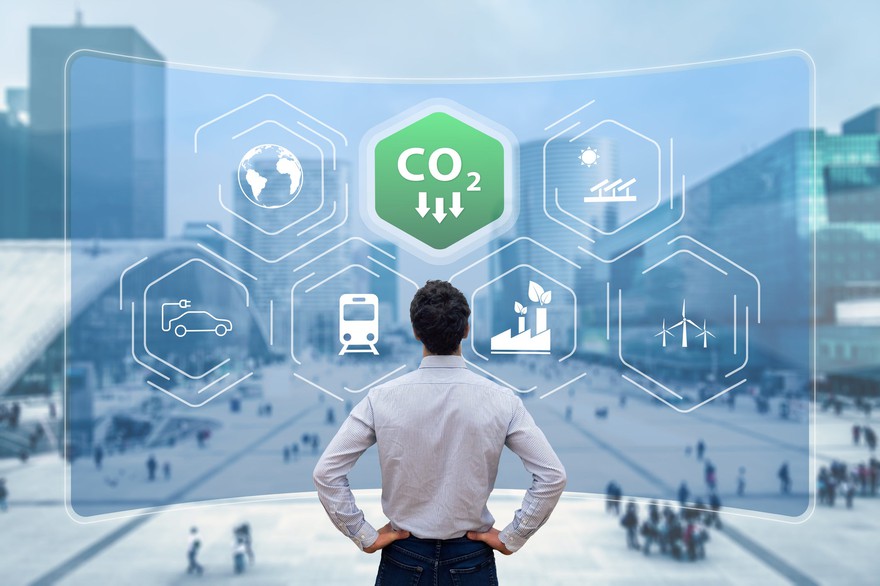Conscious capitalism is an ethical approach to profit-making that emphasizes environmental and social impact. Compared to traditional capitalism, conscious capitalism takes a broader view of value creation and the stakeholders a company must serve. The conscious capitalist pursues profits for shareholders while creating value for employees, suppliers, communities, society, and the environment.
Understanding conscious capitalism
Read on to learn about conscious capitalism, including the concept's origins, its guiding principles, and successful companies that practice a socially aware business approach.
Origin of conscious capitalism
The concept of conscious capitalism originates from a 2012 book written by John Mackey and Rajendra Sisodia. Mackey is a co-founder of Whole Foods, and Sisodia is a Babson College marketing professor and co-founder of Conscious Capitalism, Inc.

The book, "Conscious Capitalism: Liberating the Heroic Spirit of Business," argues for an upgraded form of free-market capitalism. The authors state that business leaders can achieve far more by incorporating higher purposes into their business plans than they can by a single-minded pursuit of profits.
Conscious capitalists believe that businesses aren't just accountable to shareholders -- they're accountable to the larger population and the environment, too. Business leaders and employees should incorporate the needs of a broader stakeholder group into their daily decision-making.
The goals of conscious capitalism
Conscious capitalism is ambitious and transformative. The overarching goal is to make a positive impact on the world. A starting point is elevating capitalism to its highest potential, where business as usual involves generating wealth while enriching lives and healing the environment.
Conscious businesses pursue many objectives under the umbrella of positive change. Examples include fostering leaders who are driven to serve ethically; employees who are passionate and fulfilled; workplace cultures that are accepting and authentic; wealthy shareholders; opportunity-rich communities; and a healthy, flourishing planet.
The benefits of conscious capitalism
Businesses, people, and the environment benefit from conscious capitalism. For example:
- Socially conscious businesses garner more trust, which can enhance customer loyalty.
- Happier, motivated employees are more productive and provide better customer service. They're more efficient and deepen customer relationships.
- Conscious businesses work to promote and enhance their communities, which can elevate the quality of life.
- Programs to conserve energy, minimize waste, and reduce the consumption of nonrenewable resources help protect the environment while countering the effects of climate change and pollution.
Socially responsible investing and ESG investing are growing in popularity; the types of stocks that practice conscious capitalism appeal to investors who demand good corporate citizenship.
The four guiding principles
Conscious capitalism has four guiding principles:
- Higher purpose
- Stakeholder orientation
- Conscious leadership
- Conscious culture
Higher purpose
The conscious capitalist sees profits as a means to achieve a higher purpose, which is the business's true goal. As such, it should be incorporated into business plans and used as a guidepost for decision-making.
You'll often see a higher purpose described in a business mission statement. The Motley Fool, for example, is on a mission "to make the world smarter, happier, and richer." As another example, Toms, the shoe company, says, "We've always been in business to improve lives."
Such mission statements align and engage employees and guide the company in the right direction.
Stakeholder orientation
The conscious business takes a broad view of its stakeholders and works to serve their best interests at all levels of the organization. The stakeholder group goes well beyond shareholders and board members; it includes anyone or anything affected by the business, including employees and their families, suppliers, customers, shareholders, local communities, governments, and the environment.
The conscious capitalism philosophy views the business and its stakeholders as one symbiotic ecosystem. The company depends on the health and well-being of stakeholders, and stakeholders depend on the company as a productive, ongoing concern.
Conscious leadership
In a conscious business, every team member follows the tenets of leadership on some level. These tenets are anchored by a continuous improvement mindset. Conscious leaders are striving to learn, grow, and innovate. They engage employees to support the higher purpose, they work to create win-win situations, and they are committed to operational excellence.
Conscious culture
Conscious workplace cultures are transparent, fair, and inclusive. They are consistent with the higher purpose of the business, and they value accountability and integrity.
Conscious capitalism companies
Here's a look at three companies that practice conscious capitalism.
Company | What the Company Does Well |
|---|---|
Costco (NASDAQ:COST) | Culture: Costco treats its employees well, even as it offers customers competitively priced goods. |
Patagonia | Culture: Patagonia operates in a way that is meant to reduce adverse effects on the environment. |
Starbucks (NASDAQ:SBUX) | Equal opportunity: Starbucks is deeply committed to diversity and inclusion in its workforce. |
For a longer list of publicly traded companies that invest in people and the planet, see our list of the best ESG stocks.
Costco
Mission statement: "Here at Costco, we have a very straightforward, but important mission: to continually provide our members with quality goods and services at the lowest possible prices."
Costco practices conscious capitalism in several ways, but the retailer's treatment of employees is particularly noteworthy. Rather than squeeze employee compensation to gain efficiencies and keep prices low, the retailer takes a different approach.
At Costco, above-market wages, benefits for full- and part-time workers, and generous retirement contributions promote worker satisfaction and reduce employee churn. In its 2024 annual report, the company articulated how its dedication to the workforce is a priority:
"...achieving our longer-term objectives of reducing employee turnover, increasing productivity and enhancing employee satisfaction requires maintaining compensation levels that are better than the industry average for much of our workforce. This may cause us, for example, to absorb costs that other employers might seek to pass through to their workforces."
Other ways Costco serves its ecosystem include:
- The donation of millions annually to charities and local communities.
- The company's Climate Action Plan that defines its energy usage, waste reduction, and emissions goals.
- A code of ethics enforced throughout its supply chain.
- An animal welfare policy that includes a company-owned poultry supply facility that allows birds more space, better air quality, and more protection from weather.
Patagonia
Mission statement: "We're in business to save our home planet."
Providing premium clothing, equipment, and food to help outdoors enthusiasts stay comfortable, privately held Patagonia has established a brand that is closely identified with nature. The company has demonstrated a steadfast financial commitment to the environment for four decades. Since 1985, Patagonia has pledged 1% of sales "to the preservation and restoration of the natural environment."
Additionally, Patagonia is dedicated to maintaining a supply chain that respects human rights. The company requires that new suppliers acknowledge its "Supplier Workplace Code of Conduct and the supporting Benchmark Standards, which define and set standards prohibiting child labor, forced labor, and modern slavery in Patagonia's supply chain."
Patagonia has implemented a variety of practices that help it support its goal of mitigating harmful impacts on the environment and adopting positive labor practices. For example:
- Since 1985, Patagonia has awarded more than $140 million in cash and in-kind donations to domestic and international grassroots environmental groups for use in their local communities.
- In 2020, Patagonia established its Fibers Sourcing Policy, prohibiting suppliers from purchasing cotton from China, Turkmenistan, and Uzbekistan or conducting any manufacturing processes in Xinjiang, China.
- Patagonia has partnered with Fair Trade USA to certify more than 30 factories, which produce more than 95% of all Patagonia styles in fiscal year 2025.
Starbucks
Mission statement: "To be the premier purveyor of the finest coffee in the world, inspiring and nurturing the human spirit -- one person, one cup and one neighborhood at a time."
Starbucks aims to "deliver performance through the lens of humanity." The world's largest coffeehouse chain pursues a range of programs to promote diversity, inclusion, and opportunity in its workforce.
In 2017, the company pledged to hire 10,000 refugees around the world, and in 2023, it had made significant progress towards that goal, having hired 5,500 refugee partners. Starbucks has hired 25,000 veterans and military spouses, and the company hopes to hire 5,000 more annually.
Eligible employees can take advantage of Starbucks' College Achievement plan -- a partnership implemented in 2014 with Arizona State University offering 100% tuition coverage. As of October 2025, the tuition program has helped more than 16,000 Starbucks employees complete bachelor's degrees, with more than 26,000 Starbucks employees enrolled in the program.
Starbucks also prioritizes sustainability initiatives and ethical sourcing. For example:
- The company is working toward a 50% reduction in carbon emissions, landfill waste, and water consumption by 2030.
- Starbucks will donate 100 million disease-resistant coffee trees to farmers by 2025.
- From Aug. 3 to Aug. 16, 2021, Starbucks partnered with Ocean Conservancy to donate $1 each time a customer ordered a beverage using a personal reusable cup.
- In 2004, Starbucks launched Coffee and Farmer Equity (C.A.F.E.) Practices, a verification program that measures supplier farms on economic, social, and environmental criteria. The program was among the first of its kind for the coffee industry.
Related investing topics
Business that makes the world better
Under conscious capitalism, businesses have the power to create opportunity and change the world. The approach doesn't come at the expense of profits, either. Profits are still a priority for businesses because they fund the pursuit of a higher purpose.
Successful companies such as Costco, Patagonia, and Starbucks are proving the conscious capitalism model: Investing in good is good for business.





